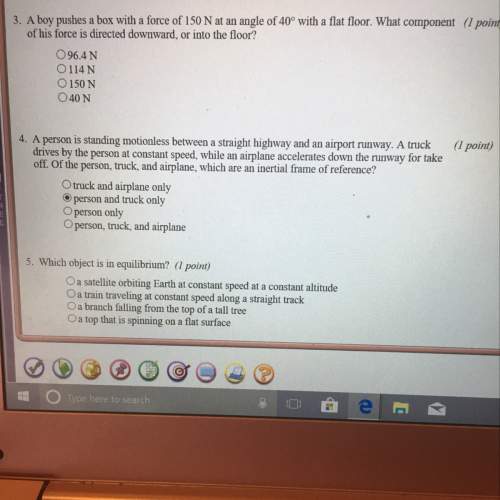
Physics, 19.12.2019 17:31 kaliyab191
Engineering solutions use scientific laws to predict behaviors of objects in certain situations. will used newton's laws of motion to predict the path of an arrow he was about to shoot. his prediction was way off. why? a) scientific laws can only be applied to lab experiments. eliminate b) scientific laws are not valid for some common objects. c) scientific laws can only be applied when objects are at rest. d) scientific laws do not account for unseen variations, like wind.

Answers: 3


Other questions on the subject: Physics

Physics, 22.06.2019 12:00, drivinghydra
Aboat radioed a distress call to a coast guard station. at the time of the call, a vector a from the station to the boat had a magnitude of 45.0 km and was directed 15.0° east of north. a vector from the station to the point where the boat was later found is = 30.0 km, 15.0° north of east. what are the components of the vector from the point where the distress call was made to point where the boat was found? in other words, what are the components of vector c = b - a?
Answers: 3


Physics, 23.06.2019 00:00, jessicawolfking
What is the difference between mass density and weight density?
Answers: 1

Physics, 23.06.2019 01:00, djs1671
To practice problem-solving strategy 10.1 for energy conservation problems. a sled is being held at rest on a slope that makes an angle θ with the horizontal. after the sled is released, it slides a distance d1 down the slope and then covers the distance d2 along the horizontal terrain before stopping. find the coefficient of kinetic friction μk between the sled and the ground, assuming that it is constant throughout the trip.
Answers: 1
You know the right answer?
Engineering solutions use scientific laws to predict behaviors of objects in certain situations. wil...
Questions in other subjects:

Mathematics, 19.07.2019 14:30

Biology, 19.07.2019 14:30











